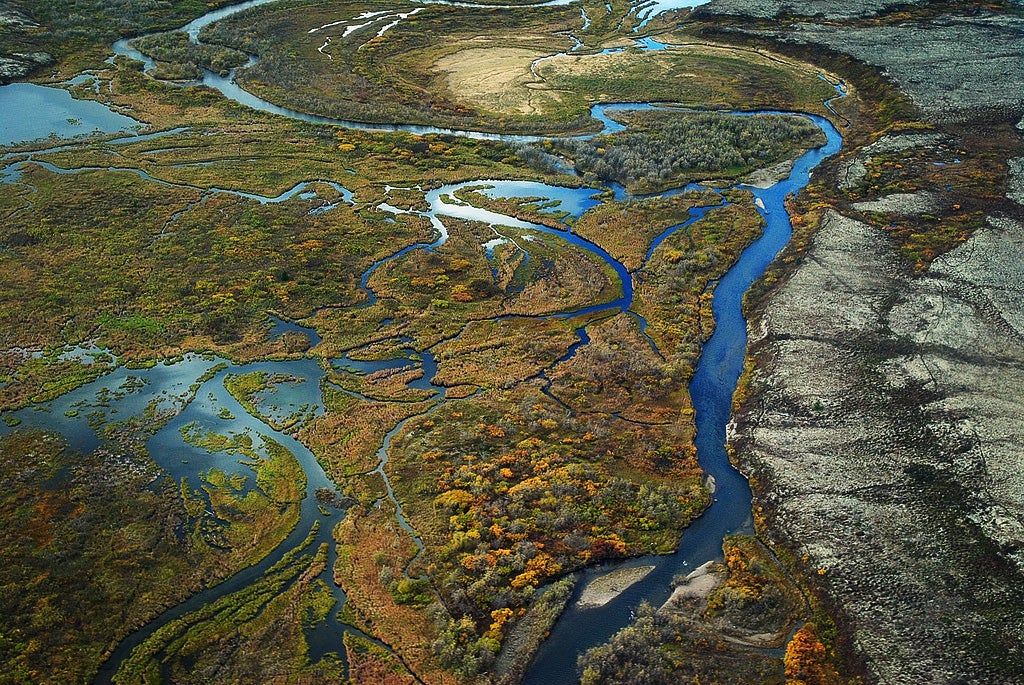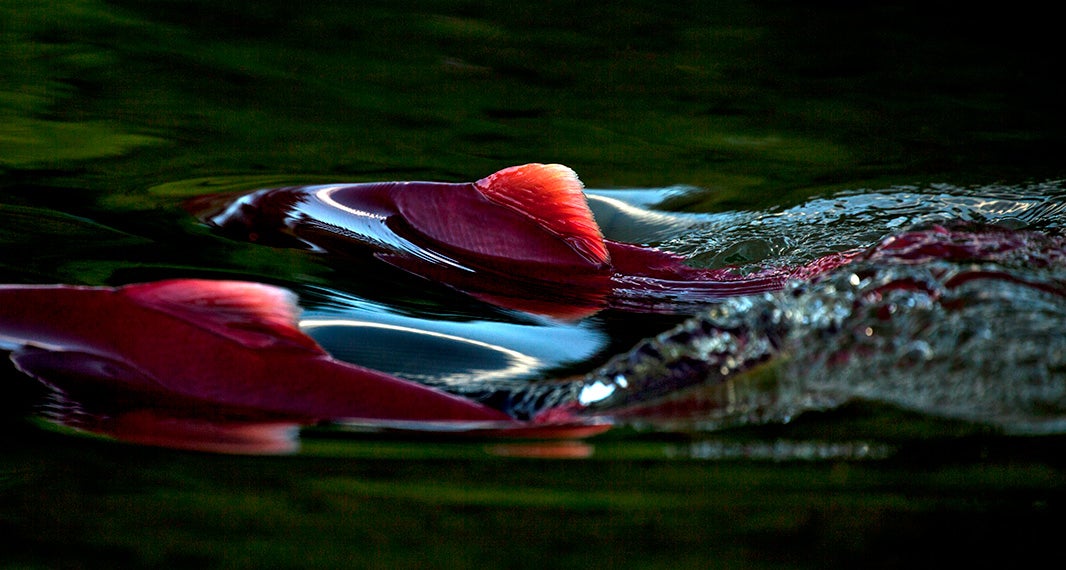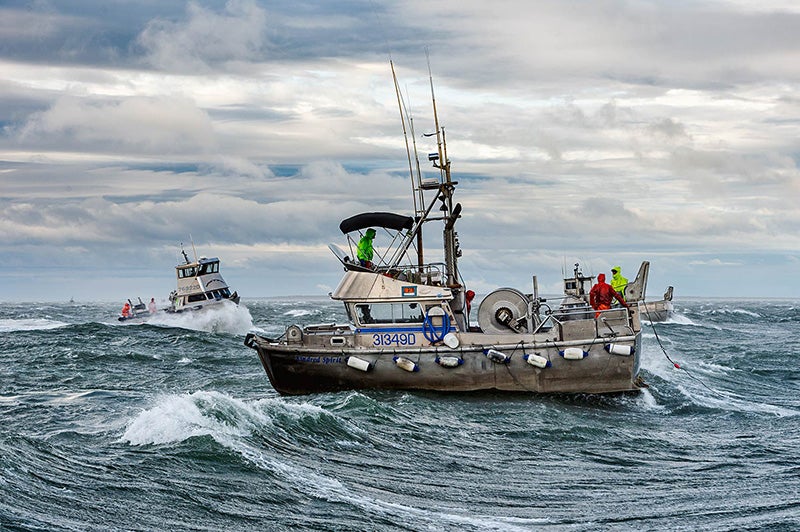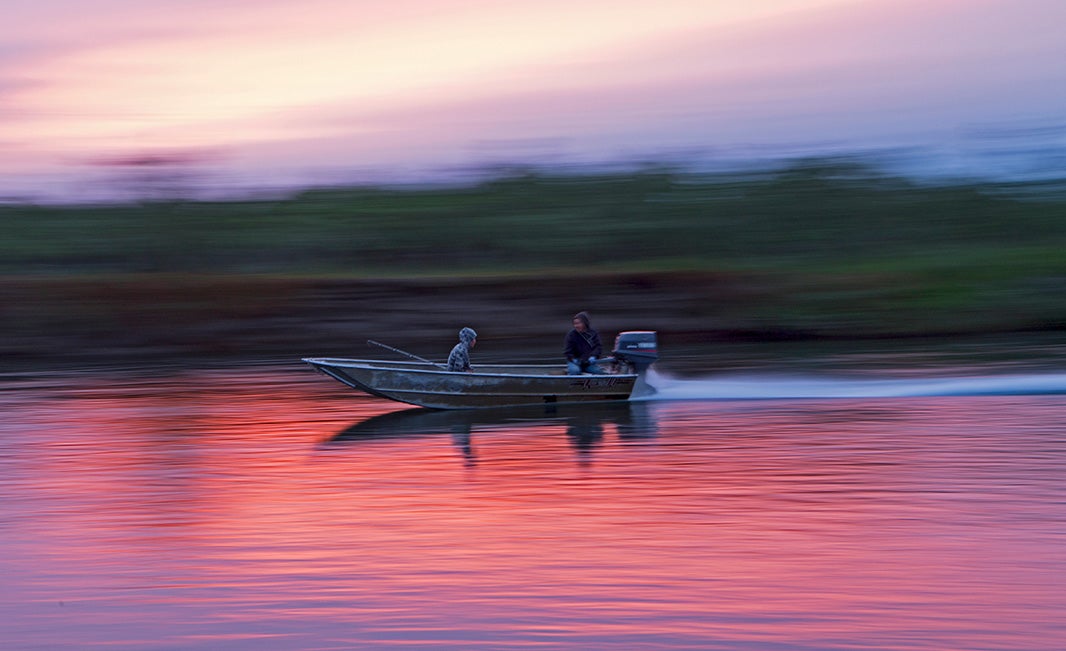– U.S. Environmental Protection Agency when proposing in 2014 to restrict development of the Pebble deposit in Alaska’s pristine Bristol Bay watershed
May 17, 2024
Alaska’s Bristol Bay & The Pebble Mine
For more than a decade, the threat of a huge, open-pit copper and gold mine has loomed over the heart of pristine salmon spawning territory in Bristol Bay, Alaska.
In Jan. 2023, following a U.S. Army Corps of Engineers decision to deny a key permit for the mine, the U.S. Environmental Protection Agency released a final determination that protects Bristol Bay waters from becoming a dumping ground for mine waste.
It is a hard-won victory by all those who have been fighting for decades to stop the Pebble Mine project. Collectively, these decisions effectively spell victory in the decades-long fight to protect Bristol Bay from Pebble Mine.
The Latest
In a blatant attempt to undo a hard-won victory for Tribes, Alaska residents, recreational anglers, and small businesses, the State of Alaska and the developers of the proposed Pebble Mine are now seeking to undo the EPA’s 2023 decision that prevents the mine from moving forward.
In legal challenges filed in March and April 2024 in federal court in Alaska, the State, Pebble Limited Partnership and its parent company, Northern Dynasty Minerals, seek to strike down the EPA determination issued in 2023 to protect the Bristol Bay watershed under Section 404(c) of the Clean Water Act.
The State of Alaska previously launched an unsuccessful attempt to get the U.S. Supreme Court to review and strike down the EPA ruling. The Supreme Court denied that request in Jan. 2024, so the State instead is pursuing its claims in federal district court in Alaska.
In coordination with clients represented by the Natural Resources Defense Council and Trustees for Alaska, Earthjustice represents Earthworks, Friends of the Earth, and the Center for Biological Diversity in moving to intervene in Pebble’s lawsuit seeking to overturn the EPA’s ruling.
Pebble Mine would directly impact the world’s greatest sockeye salmon run. It would put in jeopardy thousands of American jobs, a cultural tradition of subsistence dating back 10,000 years, and a robust sport-fishing and tourism economy. Two out of three Alaskans oppose the Pebble Mine and support these protections.
The EPA cited its authority under under Section 404(c) of the Clean Water Act in banning mine disposal in the salmon-filled waters. It took years of litigation to enable the Biden administration’s EPA to follow the extensive scientific record and put forward these enduring protections.

As proposed, the Pebble Mine project would entail mining a pit over a mile long, a mile wide and 200 meters deep, destroying nearly 3,500 acres of wetlands, lakes, and ponds and 81 miles of salmon streams. And that only includes waters directly displaced by mine facilities, not the thousands more acres that would be fragmented, dewatered, and covered with dust from the mine.
Earthjustice is committed to representing those who oppose unlawful and ill-advised mining in the vast expanse of Alaska and British Columbia.
Our Alaska-based attorneys wield extensive expertise in this arena, both on a national scale and in our Juneau office, which has battled some of the region’s worst hard rock and coal mine proposals.
The Bristol Bay watershed is worth fighting for.
One of our world's surviving great ecosystems, Bristol Bay is a sustainable economic powerhouse for local communities and the lifeblood for Alaska Native cultures who have lived there for millennia.
It produces an enormous portion of the world’s sockeye salmon catch and one of the world’s largest Chinook salmon runs, fueling 14,000 jobs and Alaska’s $1.5 billion fishing economy.

The Bristol Bay watershed is a treasure chest of wild salmon for the world.
Wild Bristol Bay salmon feed people all across the country and the world. For the Alaska Native people who comprise the majority of the Bristol Bay area population, and whose cultures can be described as “salmon-based,” salmon have a significance even beyond sustenance and wealth.
Well aware of what they stood to lose, six Alaska Native Tribes in Bristol Bay petitioned the U.S. Environmental Protection Agency in 2010 to protect this beloved watershed from Pebble Mine.
They were soon joined by a large, diverse group of people who also depend on the fishery, including more Bristol Bay Tribes and tribal organizations, commercial and recreational fishermen, seafood processors and marketers, chefs, restaurants, supermarket owners, sport fishing and hunting lodge owners and guides.
Under the Obama administration, the EPA heard them. Following a multi-year rigorous, peer-reviewed scientific study of how important the watershed is and why, the agency found that even the smallest Pebble Mine would irreversibly damage the Bristol Bay ecosystem.
Things changed dramatically under the Trump administration.

In a climate shaped by the Trump administration’s coziness with polluting industries, EPA settled a lawsuit filed by Pebble mine backers by agreeing to put protections for Bristol Bay on ice — despite its own findings that such protections were critical. At the same time, the Pebble Limited Partnership tried to sneak a permit through Clean Water Act regulations with the dubious promise of sticking to what it views as a “small” mine.
In a rushed process out of proportion with the project’s extensive destructive impacts, the Army Corps released its Draft Environmental Impact Statement (DEIS) in 2019, and the Final Environmental Impact Statement (FEIS) the following year.
Despite its incomprehensible predictions that Bristol Bay salmon would be unharmed, the FEIS omitted critical details about how exactly Pebble would avoid harming fish. The agency focused its analysis on Pebble’s 20-year proposal, barely even mentioning potential impacts of expanding the mine. Meanwhile, Pebble consistently told their investors that Pebble Mine will grow beyond the proposal the Army Corps analyzed and will last generations.
Pebble Mine executives were caught on tape saying that they expect the project proposal they have submitted to the federal government to pave the way for as much as 180 years of mining — much more than the 20 years that the proposal states. “Once you have something like this in production, why would you want to stop?” said the chief executive of mine operator Northern Dynasty Minerals in one of several recorded meetings that were made public on Sept. 21, 2020.
The latest federal agency decisions are a victory for the Alaska Native communities who opposed the mine, wild salmon, families who rely on commercial fishing for their livelihoods, and the irreplaceable Bristol Bay watershed.

Opened in 1978, our Alaska regional office works to safeguard public lands, waters, and wildlife from destructive oil and gas drilling, mining, and logging, and to protect the region's marine and coastal ecosystems.